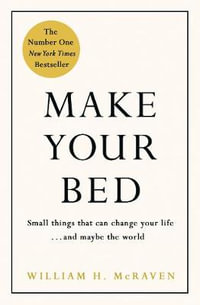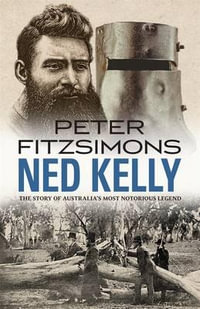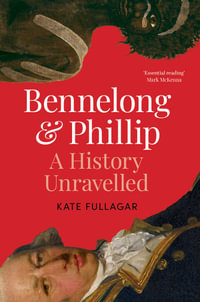
My Grandfather Duan Qirui and the Review and Reflection of the Century
ae'ça¤-a¬ae®µç¥ºç'a�a¸-纪ae¡¾a¸çaeï¼a½ee±ae-çï¼
By: å¼ ä¹?æ?§ Naihui Zhang, å¼ ä¸æ?± William Chang, å??继峰 David J. Liu (Translator)
Paperback | 1 October 2024
At a Glance
734 Pages
22.86 x 15.24 x 4.09
Paperback
RRP $130.90
$90.25
31%OFF
or 4 interest-free payments of $22.56 with
orAims to ship in 7 to 10 business days
Using time as a guiding thread, this book traces the life journey of Duan Qirui. From attending old-style private schools, his upbringing in a military camp, walking alone the one-thousand li journey at age 15 to join the army, attending Tianjin Military Academy, studying abroad in Germany, taking part in establishing the New Army at Xiaozhan, serving as the "artillery commander", assuming the position of the principal of the Baoding Military Academy and eventually becoming the important leader of the Beiyang Army and the head of the Republic of China government (ROC).
The book enumerates the contributions made by Duan Qirui to China's progress, including the initiation of China's military modernization, the insistence on the transformation of China's political system through "three creations of the Republic", and the promotion of China's entry into the Allied Powers to take part in the war against Germany, among others. At the same time, he not only opposed the monarchy dictatorship but also keenly recognized and opposed the "Knock down the Confucius' shop (打倒孔家店)" campaign promoted by the Chinese agents of the Soviet Union's Third Communist International. After became Zhizheng (执政the Chief Executive of the Republic of China, or the head of the state), he collaborated with Sun Yat-sen in seeking to convene a constitutional conference and persistently attempted to pursue the path of constitutional democracy to unify China.
Throughout the writing, the author emphasizes the importance of Confucianism's influence on the moral character of the Chinese people. In the early 20th century, Duan Qirui, who initially served as a Qing military general and later became a high-ranking official in the Republic of China, was able to abandon the traditional "King's-State (家天下)" approach and resist the wave of Soviet-style communism. Instead, he chose the path of republicanism and constitutional democracy. This can be traced back to the influence of Confucianism, which he received from a young age. Just as Christianity influenced the founding fathers of the United States, Confucianism deeply ingrained itself in Duan Qirui's bloodline, shaping his political aspirations and life path. The book's exposition is based on this context: without moral cultivation, an individual cannot go far on the right path; however, even with morally upright individuals, a society without check-and-balance of power, may succumb to the temptations of power, wealth, sex and fame, leading them astray. American founding father John Adams once emphasized, "Our Constitution was made only for a moral and religious people." This book tirelessly and extensively argues that in building a civilized society, (1) the importance of cultivating moral qualities in individuals from a young age should be recognized, and (2) the Acton's axiom, "power corrupts, absolute power corrupts absolutely", which is an objective law that is not subject to people's will, should be recognized. Therefore, the concept of "King's-State" inevitably leads to corruption as power corrupts, resulting in being strong at first and then falling apart and eventually being replaced. On the other hand, the "Party-State (党天下)" system, self-proclaimed to be superior to the decayed old world, experiences absolute corruption with absolute power and fails to catch up with the prosperity and renewal of the private capitalist market economy under constitutional democratic rule even after seventy years. Ultimately, it can only lead to the depletion of public trust and self-collapse.
Industry Reviews
Translator's Post face
Since the book in Chinese was authored by my mother and my uncle, I felt obligated to take on the task of translating it into English, even though my experience only qualifies me as a "tech guy".
I wouldn't say it's easy for me to understand fully the Classical Chinese found in the book time after time, let alone these "ancient" poems and lyrics. Fortunately, my mother, in her 90s, is still around and can lend me a helping hand. (1) When there were doubts about the accurate translation, the original Chinese is often left in parentheses and people can formulate their own interpretation. (2) In other cases, the names in Chinese are left beside their English translation for easier matching and identification. (3) Any text in italics are extra description added by the translator.
In terms of freedom of speech, freedom of the press, freedom of organization, the free market, and the practice of democratic government, such as the separation of powers, the first decade and a half of the Republic of China (the Beiyang government, or the Beiyang Period of the Republic of China, which was the internationally recognized government of China between 1912 and 1928) was much better than the years that followed, especially compared to the disastrous seventy years of Communist rule in China, during which tens of millions of its citizens died unnaturally. Both nourished by the Soviets, the Nationalists and Communists tended to bad-mouth the Beiyang government in order to seize power. Therefore, this book can serve as a different voice that seldom gets a chance to be heard in both the Chinese-speaking world and the English-speaking world.
As the first freshman class after the Cultural Revolution in China, I attended Fudan University in Shanghai in 1978, majoring in Math. In my sophomore year, I came to the U.S. and studied Computer Sciences and Math at the University of Texas at Austin, and received a master degree in 1984. After graduation, I worked as a software engineer and analyst for various firms, eventually spending the last twenty-seven years before retirement working on Wall Street for Citibank, EBS, SocGen, etc.
Liu Jifeng (a继a³° David J. Liu)
About the Authors
Introduction
Contents
Preface
1. Overview of a lifetime
2. Moral Quality, Vital for These in Power
3. The farmer's son
4. Grandson of a general Lived in the barracks at Seven
5. The sky is falling! Grandfather is gone
6. Walking over two thousand li to join the military
7. The ground collapsed! Lost both parents
8. Tianjin Military Academy
9. Studying in Germany
10. The first "artillery commander"
11. Pioneering the Modernization of the Army
12. The principal of the first modern military college
13. Yuan Shikai made a match, Duan married Zhang Peiheng
14. Marching to the beat of his own drum
15. The first act, Force the Imperial Court to abdicate
16. The second act, Boycott Yuan Shikai's coronation as emperor
17. The third act, Fighting Zhang Xun and Restoration
18. Declare war on Germany
19. Progress in the early years of the ROC is unparalleled in history
20. Progressive reform step by step, task by task
21. Duan Qirui's cabinet: utilize talents and experts
22. Fairness, Integrity and Principles
23. Focus on things not on people
24. Duan Qirui in the eyes of others
25. Economy expanded rapidly at the birth of ROC
26. Freedom of speech, press and publication in the Beiyang period
27. Anfu Congress
28. Letting go of attachment, take refuge in Buddhism
29. Content with simplified life, practice what one preaches
30. Moral standard and Clever Deception - Internal Reflections
31. Heavenly principles as the foundation and humanity as the guide - External Review
32. On the Similarities and Differences of Sages and Heroes
33. Grandpa and Sun Yat-sen
34. Grandpa and Xu Shuzheng
35. Each has their own calculation - Duan Qirui and Japan
36. The Nishihara Loan
37. "March 18th" tragedy, the kneel down
38. Declassification of Soviet archives and "March 18"
39. Diplomacy in the Beiyang Period
40. Three up and three down
41. Grandfather's life moments
42. Take part in building Zhengfeng Coal Mine
43. Grandpa and Go Chess
44. Not to be bought by Japan, relocated to Shanghai
45. Lifelong Writing, lost in bombing
46. Stories of the kids
47. Passing away on the eve of the War with Japan
48. Resting in Peace fourteen years after death
49. Leaving a Will of "Eight Don'ts"
50. Duan's family
Postscript
Translator's Postface
ISBN: 9781665800358
ISBN-10: 1665800356
Published: 1st October 2024
Format: Paperback
Language: English
Number of Pages: 734
Audience: General Adult
Publisher: EHGBooks
Dimensions (cm): 22.86 x 15.24 x 4.09
Weight (kg): 1.06
Shipping
| Standard Shipping | Express Shipping | |
|---|---|---|
| Metro postcodes: | $9.99 | $14.95 |
| Regional postcodes: | $9.99 | $14.95 |
| Rural postcodes: | $9.99 | $14.95 |
How to return your order
At Booktopia, we offer hassle-free returns in accordance with our returns policy. If you wish to return an item, please get in touch with Booktopia Customer Care.
Additional postage charges may be applicable.
Defective items
If there is a problem with any of the items received for your order then the Booktopia Customer Care team is ready to assist you.
For more info please visit our Help Centre.























